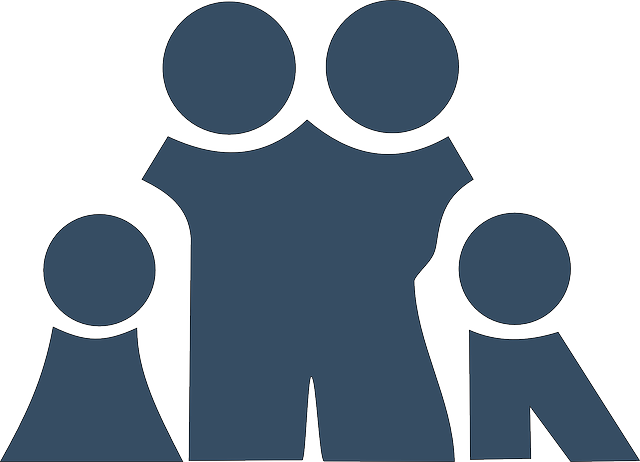Parental alienation, a post-divorce phenomenon where one parent manipulates a child against the other, has severe consequences for children's emotional well-being and mental health. Legal protections in many jurisdictions prevent harmful behaviors, enforce visitation rights, and prioritize children's best interests. A multi-faceted approach combining legal measures, open communication, therapy, support groups, and education is crucial to combat alienation, foster healing, and strengthen parental relationships, ultimately safeguarding children's emotional security and future relationships. Understanding and upholding parental rights is essential for creating a healthy environment for children's growth and recovery.
Parental alienation can have profound, lasting effects on children, eroding their sense of security and identity. This insidious phenomenon occurs when one parent manipulates a child against the other, often with devastating consequences. Understanding the subtle signs and impacts is crucial for recognizing and addressing this issue. This article explores various aspects of parental alienation, focusing on legal protections for children’s rights, strategies to mitigate harm, and resources for healing and recovery. By examining these key areas, we aim to empower parents and support systems to protect and nurture affected children.
- Understanding Parental Alienation: Definition and Impact on Children
- Legal Protections for Children: Enforcing Parental Rights
- Strategies to Mitigate the Effects of Parental Alienation
- Supporting Healing and Recovery: Resources for Affected Children and Families
Understanding Parental Alienation: Definition and Impact on Children

Parental alienation refers to a complex phenomenon where one parent manipulates a child’s affection, causing them to reject or feel distressed about the other parent. This often occurs after a divorce or separation, and it can significantly impact children’s emotional well-being and their ability to maintain healthy relationships. The effects of parental alienation can be long-lasting, affecting their self-esteem, social skills, and overall mental health.
Children caught in such situations may exhibit confusion, fear, and even anger. They might start seeing one parent as “bad” while the other becomes distant or inaccessible. It’s crucial to recognize that this isn’t a reflection of the child’s true feelings but rather a result of manipulation. Upholding parental rights and ensuring children’s protection from such alienation is essential for their healthy development, allowing them to nurture loving relationships with both parents post-separation.
Legal Protections for Children: Enforcing Parental Rights

In many jurisdictions, legal protections are in place to safeguard children from the harmful effects of parental alienation. These measures aim to enforce parental rights while ensuring a child’s best interests are paramount. Legal systems recognize that stability and continuity in a child’s life are crucial for their emotional well-being and healthy development. As such, courts often issue orders that prevent either parent from engaging in behavior that could sever the bond with their child, such as relentless criticism of the other parent or attempting to turn the child against them.
The enforcement of parental rights involves a comprehensive approach, including custody arrangements, visitation schedules, and communication protocols. These legal protections are designed to foster an environment where both parents maintain a meaningful relationship with their child, even if they are no longer together. By establishing clear guidelines and regular oversight, the court can help mitigate the risk of parental alienation and promote a healthy co-parenting dynamic.
Strategies to Mitigate the Effects of Parental Alienation

To mitigate the devastating effects of parental alienation, several strategies can be employed, focusing on both legal protections and fostering open communication. First, it’s crucial to educate parents and children alike about the consequences of such actions, helping them understand that alienating behavior is harmful and often contravenes legal parental rights. Counseling and therapy sessions can serve as a safe space for families to navigate complex emotions and rebuild bonds. These sessions encourage honest dialogue, promoting a healthier co-parenting relationship.
Furthermore, courts play a vital role in safeguarding children from parental alienation by implementing specific orders and monitoring compliance. Legal interventions, such as limited or supervised visitation rights, can ensure the child maintains a connection with both parents. Support groups for alienated children and co-parents can also provide a sense of community and shared experiences, fostering resilience and emotional healing.
Supporting Healing and Recovery: Resources for Affected Children and Families

Supporting Healing and Recovery: Resources for Affected Children and Families
When a child is caught in the crossfire of parental alienation, accessing appropriate resources becomes paramount to foster healing and recovery. These challenging situations can leave deep emotional scars, impacting a child’s sense of security, self-worth, and future relationships. It’s crucial to offer affected children specialized support that addresses their unique needs. Psychotherapy, for instance, plays a vital role in helping them process their experiences, build resilience, and regain a positive sense of self. Family therapy can also facilitate open communication, repair damaged bonds, and strengthen the parental relationship if possible, thereby enhancing the child’s overall well-being.
In addition to therapeutic interventions, various support groups cater specifically to children navigating parental alienation. These safe spaces allow them to share their stories, connect with peers who have similar experiences, and gain a sense of belonging. Furthermore, empowering parents through education and counseling can significantly contribute to a healthier family dynamic. Understanding their rights and learning effective communication strategies enables parents to advocate for their children’s best interests, fostering an environment conducive to healing and growth.
Protecting children from the harmful effects of parental alienation is paramount. By understanding the definition and impact on children, utilizing legal protections for their rights, implementing strategies to mitigate alienation, and providing resources for healing and recovery, we can foster an environment that supports these young individuals’ well-being and helps them thrive. Upholding parental rights is crucial in ensuring children receive the love, support, and stability they deserve.
